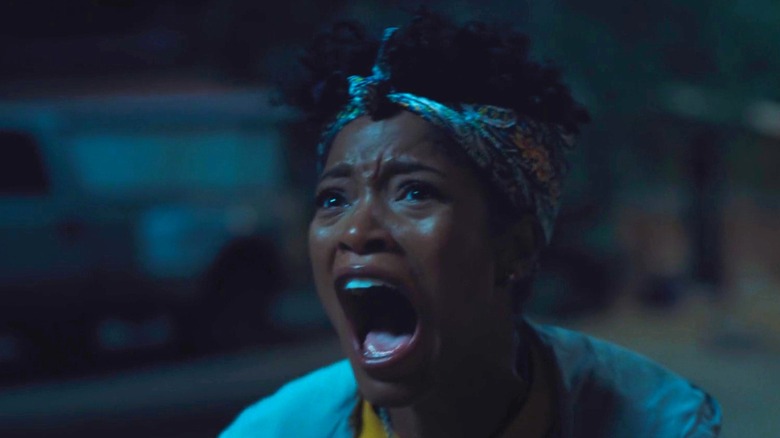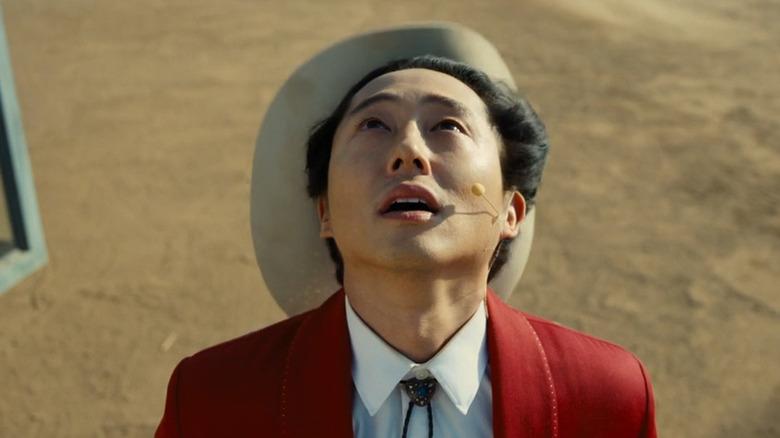Jordan Peele Knew That Nope Had To Nail Its Sound Design
Jordan Peele's new sci-fi nightmare "Nope" has finally arrived, and it's exactly as terrifying as you've been led to believe. You'll be sure to think twice the next time you look into the sky, just as Spielberg made the water feel like a treacherous abyss ready to swallow you whole in "Jaws." The film is a spectacle through the eyes of a filmmaker who has continued to hone his craft, while also turning it back on us. The word of mouth on this one is gonna keep "Nope" rolling throughout the summer.
The world of "Nope" feels so rich in its cast of characters. Daniel Kaluuya, Keke Palmer, Brandon Perea, Steven Yeun, and Michael Wincott are put through the wringer as what appears to be a UFO makes itself known in this desolate California gulch. Kaluuya's OJ and Palmer's Emerald see this as a perfect opportunity to get photographic proof of extraterrestrial life, but the more they learn about this strange anomaly, it quickly dawns on them that this is bigger than anything they ever could have imagined.
For as much as Peele decides to show you, he allows the viewers to lean into their own dark imagination, and that's just as terrifying, if not more so. While the exciting score from "Get Out" and "Us" composer Michael Abels is one of the biggest factors in striking a sense of fear into the heart of all the UFO madness, there was one aspect that Peele knew "Nope" really had to get right. I'll be keeping it as *spoiler-free* as I possibly can, but if you want to go into Peele's sci-fi horror epic cold, save this one for later.
When the sky goes silent, you better start running
Peele had recently made a guest appearance on Cinemablend's Reel Blend podcast, and the topic of conversation shifted to how effective the sound design of "Nope" is. The film's sound designer, Johnnie Burn ("Under the Skin") commands your attention. When asked how he put together such an immersive atmosphere, Peele spoke about working with Burn to give the unidentified flying threat a personality based on something we feel almost every day:
"We started talking about the UFO, in terms of how it would — how it sounds, and the environmental effects that it would create if it's going by. So a lot of it became about wind early on, and he has this library of wind ... I can't tell you, I mean we really – you know, knowing how important sound was for, say, 'Close Encounters,' we very early got into the mindframe of just knowing that we would get to do Atmos and Dolby, and really put ourselves under and behind everything. He made it totally immersive."
Immersive really is the best way to describe the sound design for "Nope," as it envelops you in this world from every angle. When you think of Burn's work in "Under the Skin," it accentuates how terrifying the lack of sound can be. Those familiar with the harvesting scene know exactly what I'm talking about.
Burn plays on the paranoia of the panicked characters of "Nope" caught in a bad situation. Silence and fear go hand in hand here. The film follows the tradition of a designated motif to let you know that peril is heading your way. When all of the noise from anything electronic starts to fade away, it's probably best to start running.
"Nope" is now playing in theaters.

